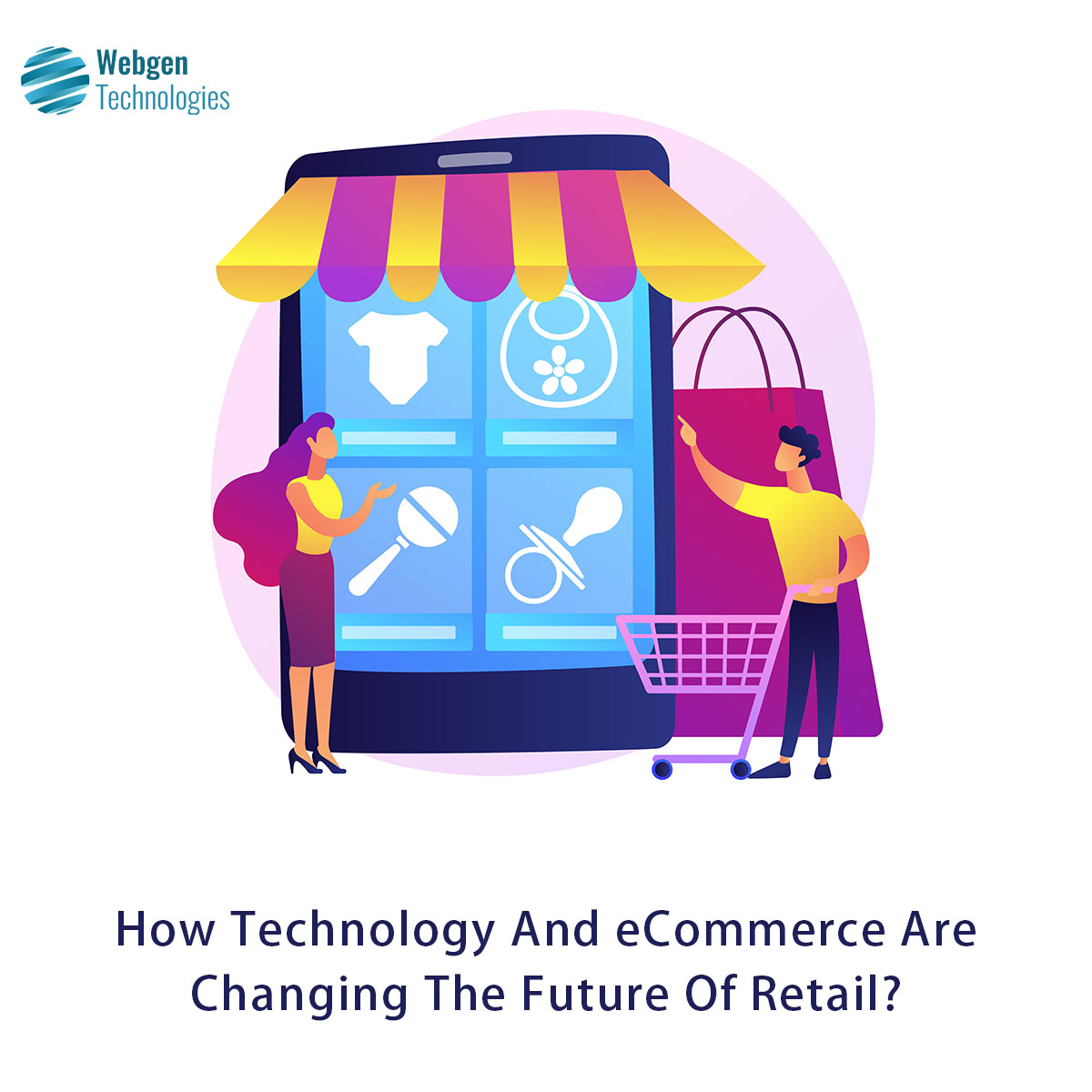Technology has been a catalyst disrupting our way of living. By easing our lifestyle with various technologies ranging from intelligent home equipment to self-driving cars, technologies have made it possible for us to live our lives in ways we could have never imagined otherwise.
For instance, the recent coronavirus outbreak has made it challenging for people to visit physical stores. Nevertheless, the brick-and-mortar stores managed to reach out to their customers at their convenience with the aid of digital technologies such as the e-commerce platform. In turn, the pandemic situation has significantly boosted the number of e-shoppers and modified their purchasing behaviours.
That has further generated a curiosity in the industry to learn about how technology and e-commerce collectively are changing the landscape of future retail. Considering the same, in-office experts have curated a list of possible changes in future retail that will be driven by technological advancement in the industry coupled with the innovations and upgradation taking place in the world of e-commerce.
Ways in which technology and eCommerce are changing the Future Of Retail:
Adoption of omnichannel marketing strategy: Buyers and shoppers are looking for a seamless shopping experience across platforms at their convenience. Since customers require consistent interactions – online and offline, to drive more sales, businesses should opt for online and offline marketing channels. Online sales growth is marked twice as fast as with an existing physical store in the market. In fact, amidst Covid-19, there is a noted upsurge in the click and collect order volumes in the retail sectors. Following the same, in the future of retail, businesses will require to connect both the digital and physical world to have a better marketing prospect. That will require them to adopt an omnichannel marketing strategy.
Extensive use of visual try-on and 3D configuration: Coronavirus has sped up the digitization process of retail, amplifying the need for a heightened customer experience in digital stores to attract and maintain their buyers across platforms. For fostering a service-oriented environment on digital mediums, retailers will adapt and utilize 3D configuration and visual try-on technology to allow their buyers to visualize the product on themselves and attain a life-like shopping experience online.
Use of Artificial Technology in retail stores – both physical and online: Artificial Intelligence is reshaping the way that companies manufacture products and the way that customers search for, engage with, and shop for products. Usage of Artificial Technology in retail stores, both physical and digital, will enable businesses to stay ahead of the competition by employing deeper business insights provided by AI-based data analytics. From providing intelligent product recommendations to online buyers to assisting businesses set prices for their products by visualizing the likely outcomes of multiple pricing strategies to maintaining supply chain and logistics, AI helps retail stores do that and more with heightened efficiency and convenience.
Staff-free and cashless stores: Automation in retail stores are reducing human involvement in the production process. That further facilitates productivity and profits for the same. Besides, from entirely automated warehouses to intelligent in-store assistance, automation is transforming the way retail stores operate. By eliminating paper price tags, implementing smart shelf tags, helping customers search their products in their specific languages, assisting stores to efficiently manage their inventory while further enabling real-time monitoring of the stores, automation does all that without requiring the assistance of human workers. Besides, automation further empowers buyers to shop without using cash as the amount gets automatically deducted from their account as they leave the store, enhancing the efficiency of the same.
Voice commerce: Voice commerce nevertheless enables users to reduce their dependence on hardware to find and purchase a product online, using voice recognition technology. Although at an initial stage, industry experts believe that voice commerce will revolutionize the future of retail.
Robotics: From reducing the requirement of human workers to capturing more detailed data about products on the shelf and customer behaviour, IoT-enabled retail robots are creating an intelligent digital ecosystem that ensures a heightened shopping experience across stores.
Hence are the most notable changes driven by technology and eCommerce will influence the future of retail.
Do you need professional assistance to develop cutting-edge eCommerce solutions for your business? Contact Webgen Technologies today!
Views: 927





